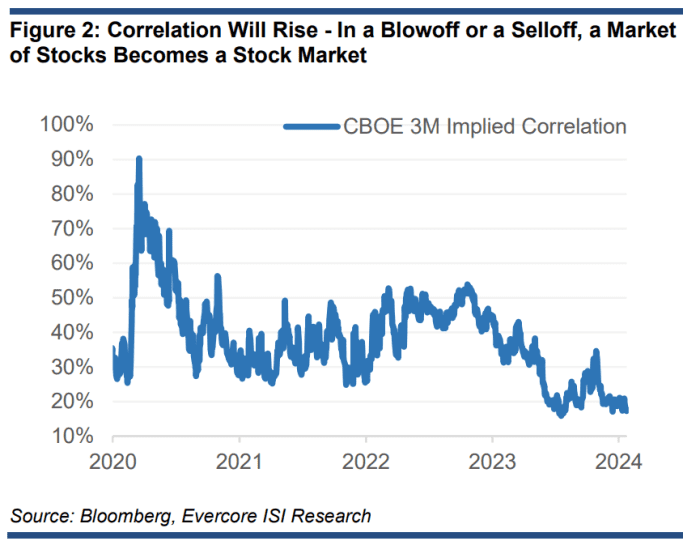The resilience of the U.S. economy has been a surprise to Wall Street, and the Federal Reserve, for well over a year now, and the latest GDPNow estimate from the Atlanta Fed suggests the first quarter could once again handily beat Wall Street’s estimates.
The leading theory on why the economy has been so strong, even amid a surge in inflation and then a steep rise in interest rates, is the power of fiscal spending. One paper last year suggested that unless the government pays down the debt — no risk of that with this Congress — excess savings will continue to “trickle up,” for a period of five years.
Analysts at institutional brokerage Strategas led by Don Rissmiller agree that what they call “big fiscal” — the large budget deficits being run at a time of full employment — is a major driver of the economy. But they also point to another factor at work: immigration. “There are good reasons to believe the U.S. has benefited from positive supply effects, ie, there’s surprisingly solid real economic growth (~3%) along with more tame inflation (~3%) as we start 2024,” they say in a presentation. And the upside really appears to be U.S. specific rather than global.
Disinflation, they say, isn’t just about supply chains improving. Measures of stress, they note, suggest the supply-chain-disruption story largely ended by the middle of 2023. They also pour cold water on the energy shock receding, pointing out that happened by the end of 2022.
So that’s where immigration plays a role, helping to offset the aging of the U.S. workforce. “To the extent U.S. immigration has been tough to fully measure in recent years, the reported data may be underestimating this boost. The policy enacted by some states to relocate migrants from the southern border to larger cities may have also had the (likely unintended) effect of matching individuals to regions where there was an ability to work, even if informally. Such an occurrence could then help explain other U.S. data anomalies (e.g., missing workers in the household employment survey, missing income in the gross domestic income calculation)”
Immigration is the source of a discrepancy between the Congressional Budget Office, which estimates the U.S. population rose by 0.9% last year, and the Census Bureau, which estimates a 0.5% rise. “It’s tough to know for sure, but if there’s uncertainty around how many people are in the country it wouldn’t be a big stretch to think that some of the income is also not being reported correctly,” they say.
What are the market implications? “My most immediate concern is that if there’s a substantial change in the U.S. government’s policy regarding the border, that could set the stage for a second wave of inflation,” said Rissmiller in a follow-up email. “Given how out-of-consensus that seems vs. expectations of central bank policy (easing) this year, that would pressure both bonds and stocks.”
A change doesn’t appear to be imminent: a bipartisan border bill collapsed this week amid pressure from former President Donald Trump.
The market

It’s a true market of stocks, as this chart showing low correlation between S&P 500 companies demonstrates. “Earnings reactions from stocks like Snap and Ford illustrate that correlations are low and it has been a market of stocks. For now,” say strategists at Evercore led by Julian Emanuel. He says the move to 5,000 on the S&P 500 increases the likelihood of sustained volatility in both directions. Since December, stocks and volatility have risen, which is a rare combination that’s only happened twice since 2000, and both times resulted in sell-offs.
Random reads
The land of Ferrari and Lamborghini imposes a 20 mile-per-hour speed limit.
Coca-Cola
KO,
is releasing its first permanent new soda in three years.
This 285-year-old lemon was auctioned for a pretty sweet £1,416 ($1,787).
Need to Know starts early and is updated until the opening bell, but sign up here to get it delivered once to your email box. The emailed version will be sent out at about 7:30 a.m. Eastern.
Check out On Watch by MarketWatch, a weekly podcast about the financial news we’re all watching — and how that’s affecting the economy and your wallet.
